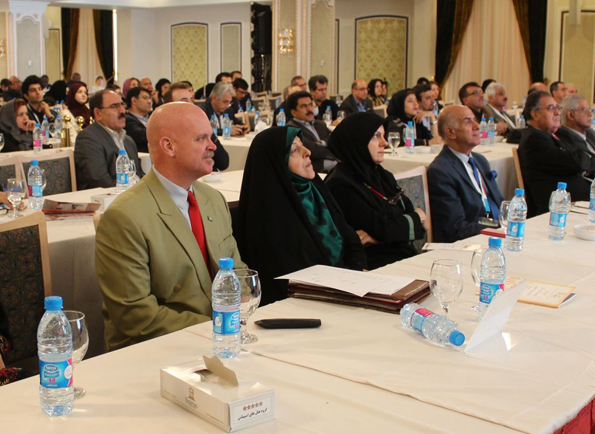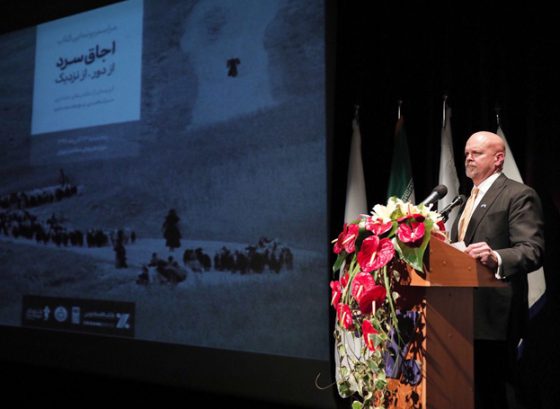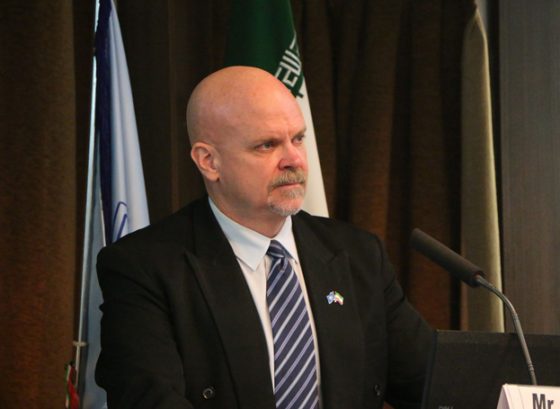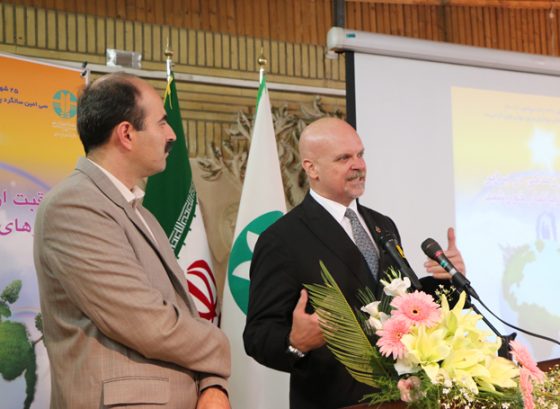“SDGs can provide a blueprint to tackle global issues, including health”: UN Resident Coordinator

According to the World Health Organization “Cancers figure among the leading causes of morbidity and mortality worldwide and It is expected that annual cancer cases will rise from 14 million in 2012 to 22 within the next two decades, AVA Diplomatic reports.
On 19th November, Vice-President and Head of Iran’s Department of Environment, Dr. Masoumeh Ebtekar along with medical professionals and the United Nations Resident Coordinator, Mr. Gary Lewis attended the “West Asia Cancer Conference” to discuss global experiences and providing solutions on diagnosis and treatment for different types of cancer.
Speaking at the event Dr. Ebtekar referred to a report published by the World Health Organization and announced that air pollution is one of the leading causes of cancer, especially lung cancer in the world. And then continued by saying: “Destruction and environmental pollution have many consequences and threats including the development of diseases such as cancer.”
In his address, Mr. Lewis discussed the changing nature of the global public health landscape and in this regards said: “We must not overlook the importance of the bio-medical approach to health. But we can make major improvements in health by taking coordinated action outside the health sector.”
Citing Non-Communicable Diseases (NCD) such as cardio-vascular diseases, cancers, chronic respiratory disorders and diabetes being influenced by life-style choices such as tobacco use, an unhealthy diet, lack of exercise and harmful use of alcohol, the UN Resident Coordinator said: “Our new Sustainable Development Goals – the SDGs – can provide a blueprint to tackle global issues, including health – such as cancer – by the year 2030.”
Mr. Lewis added: “For us to be able to work towards achieving this challenging global agenda, action on the social determinants of NCDs should take place both within and outside of our health sector and this can happen:
- If our leaders provide the right policy environment.
- If we take care of our air quality, and our food quality.
- If our legal framework to enforce sound policy is strong.”
Mr. Lewis noted that the United Nations’ focus in the past in collaboration with national authorities has been to tackle communicable diseases such as HIV, Malaria and Tuberculosis. But, now the future focus of the UN and its partners under the new United Nations Assistance Framework – which will come to effect as of 1st January 2017 – is to prevent and control the NCDs.
Ending his remarks Mr. Lewis said: “I would like to congratulate the Iranian Cancer Association for having the vision to continue to raise awareness through events like this. The United Nations in Iran stands ready to assist in finding solutions to NCDs and – of course – cancer.”




